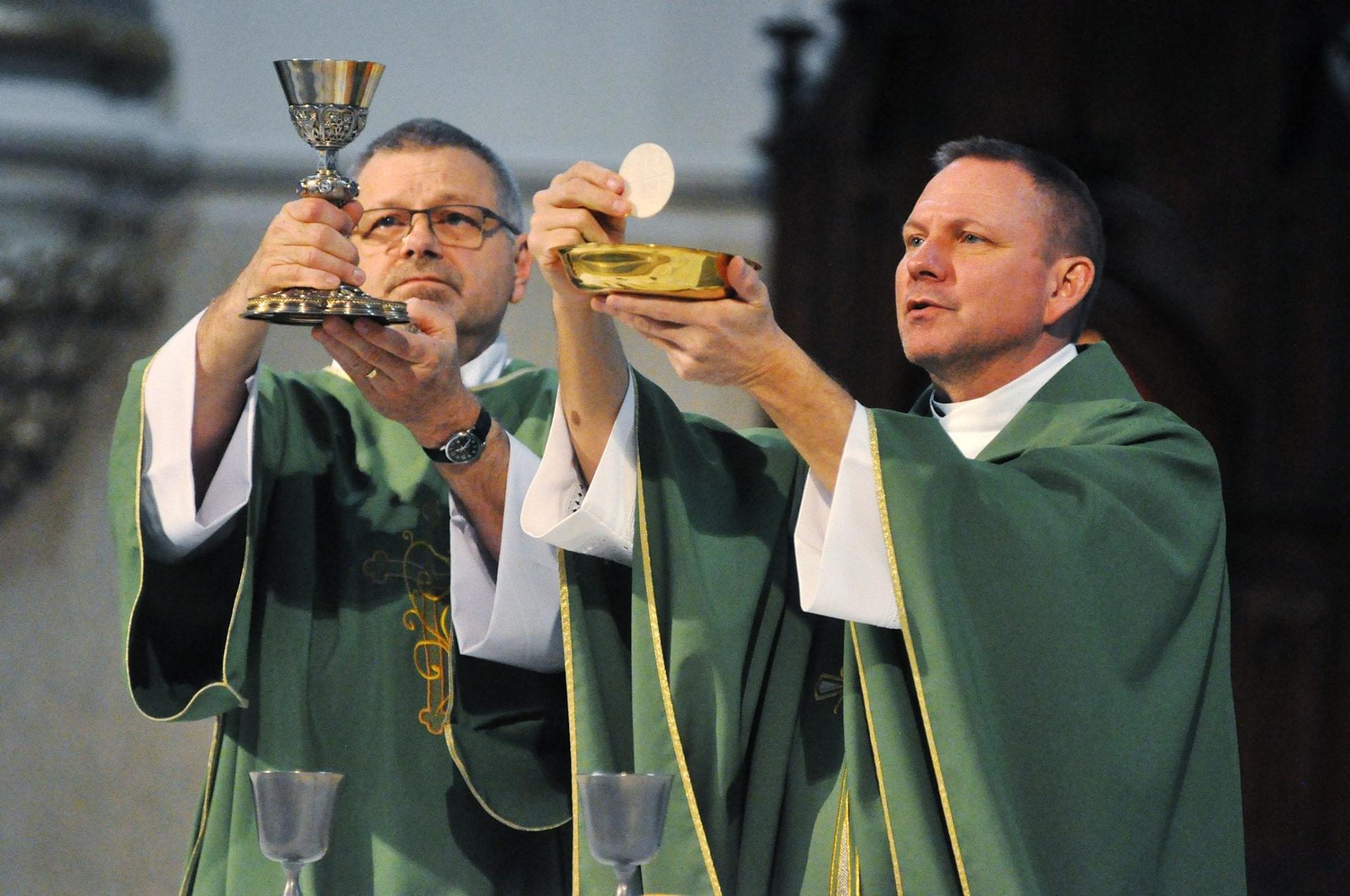So what do the Holy Spirit, the Holy Trinity, and the Eucharist have in common? Such an odd question bubbles up the flow of feast days over the past three weeks. We’ve gone from Pentecost, to Trinity Sunday, to Corpus Christi today. Why this procession of feast days? Is there an inner logic to the chronology that begs some important lessons?
As a mother and teacher, the Church does everything with an intention. Even when human minds might be distracted or hearts are in a hurry, God’s providence always orders things in such a way that anything can guide, help, and uplift his people.
This is especially true of the liturgical year. The rotation of seasons, feast days, Scripture readings, and various customs are all in service to the Christian believer who seeks to love and serve God in the midst of the joys and sufferings of life.
And so, what connection is there between the holy days of the past three Sundays?
A quick rundown might help: The Holy Spirit is given to enlighten and teach the human family about the truths and ways of God. This illumination empowers us to approach and understand God as a Divine Family. This mystery of the Trinity shows us our own inner essence and points us to fellowship with God and our neighbor.
The Eucharist is the gift given by the eternal Son of God to humanity. It is his flexibility stretch between God and humanity.
The Second Person of the Trinity became a man, he loved with a human heart and cried with human tears, and in all things, he showed us how to live as the children of God. For our salvation, he took sin upon himself and destroyed it from the inside out. He dispelled darkness and vanquished fear.
In these ways, the Lord Jesus became the way in which we can dwell with God here on earth and into eternity forever.
But how can the Lord Jesus be the way? After his death, his body was glorified and his body and soul ascended into heaven. How can he practically help us today in 2019?
The Spirit is sent, the Trinity is revealed, and the Eucharist is given. The Lord allows his divine presence to remain with the human family under the appearance of bread and wine. From the moment of his Passion, Death, and Resurrection, the Lord instituted an everlasting memorial and left us a heavenly foretaste, or more colloquially we’d say an appetizer of heaven. This is the Eucharist.
Hailed by the mystics as the Bread of Angels, the Eucharist is a tangible reminder to us of God’s accompaniment through the journey of life. It points us to our higher natures, reminds us of virtue, calls us to serve the poor and vulnerable, nurtures transcendence within us, prepares us for heaven, and reveals the glory of God to us while still on earth.
There would be no Eucharist without the power of the Holy Spirit. He does the heavy lifting in transubstantiating bread and wine into the Body and Blood of Jesus Christ. There would be no knowledge of God without the Holy Spirit, and there would be no understanding of the Divine Family to whom we are called to have fellowship without the revelation of the Holy Trinity.
There would be no clear access to the living God or a means or responding to his invitation without the Eucharist. In this way, we can see the dynamism that exists between these three realities and by the holy days that represent them.
In consuming the Eucharist, we give our “yes” to the truth of a Triune God. We welcome the Holy Spirit into our lives. We assent and declare our desire to follow the most excellent way of love given by the Lord Jesus and we express our hope to dwell with him forever in heaven. The Eucharist is our appetizer that points us to the full meal. It’s the source of our compassion and selfless service and the summit of all that we can attain in this world.
In this way, we can see the beauty expressed by Pope Saint John Paul II, who said: “The Eucharist is the secret of my day. It gives strength and meaning to all my activities of service to the Church and to the whole world.”
And so, the Holy Spirit, the Holy Trinity, and the Eucharist are intimately intertwined in the lives of believers as each one seeks to know and love God in this life and so live forever with him in heaven.
Crux is dedicated to smart, wired and independent reporting on the Vatican and worldwide Catholic Church. That kind of reporting doesn’t come cheap, and we need your support. You can help Crux by giving a small amount monthly, or with a onetime gift. Please remember, Crux is a for-profit organization, so contributions are not tax-deductible.
















